

Introduction
South Korea is one of the most digitally connected countries in the world, with more than 95% of the population using smartphones and actively engaging with e-commerce platforms. The Korean e-commerce market is valued at over $130 billion (as of 2025), ranking among the top in Asia. For global businesses, tapping into this market requires more than basic translations—it requires granular, real-time data that reveals how Korean consumers shop, what they value, and how products are marketed. That’s where real-time scraping of Korean e-commerce data becomes essential. Platforms like Naver Shopping, Coupang, and Gmarket dominate online retail in Korea. Businesses that Scrape Naver product data gain insights into keyword trends, buyer intent, and popular SKUs. By Scraping Coupang listings, companies can monitor price fluctuations, seller performance, and new product entries. Additionally, Gmarket data scraping supports competitive benchmarking and local brand positioning. Together, these datasets help global sellers fine-tune localization strategies, optimize product listings, and respond swiftly to Korean consumer behavior.
Why Scrape Naver, Coupang & Gmarket?
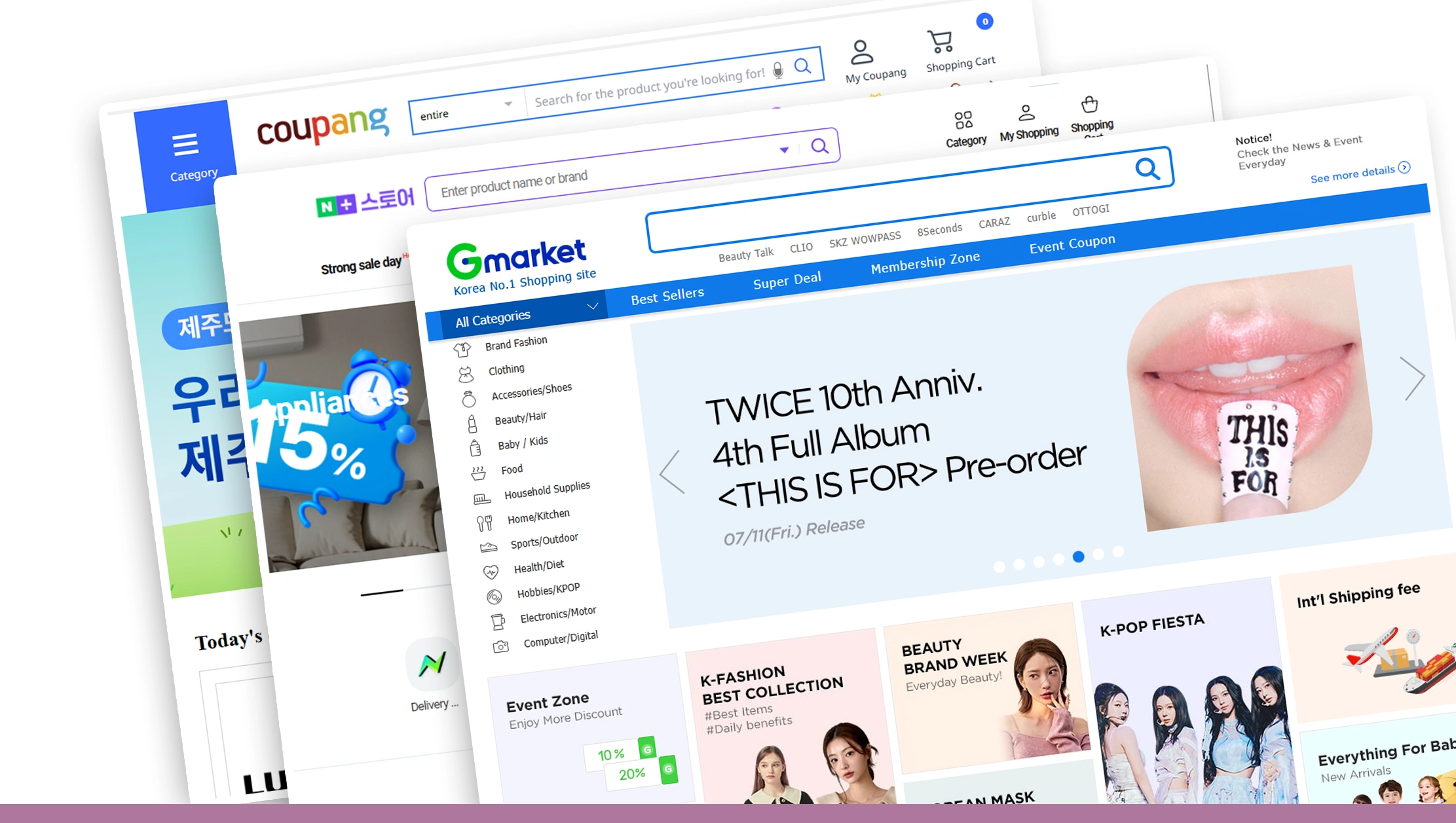
South Korea’s online retail ecosystem is incredibly diverse, with each major platform offering distinct consumer behaviors, data structures, and opportunities. For global and local businesses aiming to penetrate or expand within the Korean digital retail market, using Korean e-commerce data scraping is no longer optional—it’s essential.
Let’s look at the strategic importance of these three dominant platforms:
Naver Shopping acts as the Google of Korea, where search results are seamlessly integrated with shopping. When you Scrape Naver product data, you gain direct access to what consumers are searching for, trending products by category, and highly relevant keyword data. It’s ideal for understanding customer intent, ad targeting, and real-time product visibility.
Coupang, often referred to as the “Amazon of Korea,” provides deep insights into delivery speed, stock levels, and consumer satisfaction through its Rocket Delivery service. Brands that Scrape Coupang listings can extract logistics patterns, review sentiment, pricing strategies, and seller competitiveness—essential for operational benchmarking and fulfillment optimization.
Gmarket, a hybrid marketplace with international sellers, blends auction-style and fixed-price listings. Through Gmarket data scraping, analysts can monitor cross-border pricing strategies, promotional structures, and buyer preferences, especially in categories like fashion, beauty, and consumer electronics.
Using real-time e-commerce scraping Korea, businesses can collect vital data like:
- Product names and multilingual descriptions
- Live pricing, offers, and historical discounts
- Review volumes and customer ratings
- Seller rankings and fulfillment options
- Stock availability and restock timing
By combining insights from all three platforms—via Scrape Naver product data, Scrape Coupang listings, and Gmarket data scraping—companies can build a robust, real-time view of the Korean digital commerce landscape and make highly localized, data-backed decisions.
Unlock Korean e-commerce success—Scrape Naver product data, Scrape Coupang listings, and run Gmarket data scraping for deep, real-time consumer insights today!
Get Insights Now!Top Use Cases for Real-Time Product Scraping
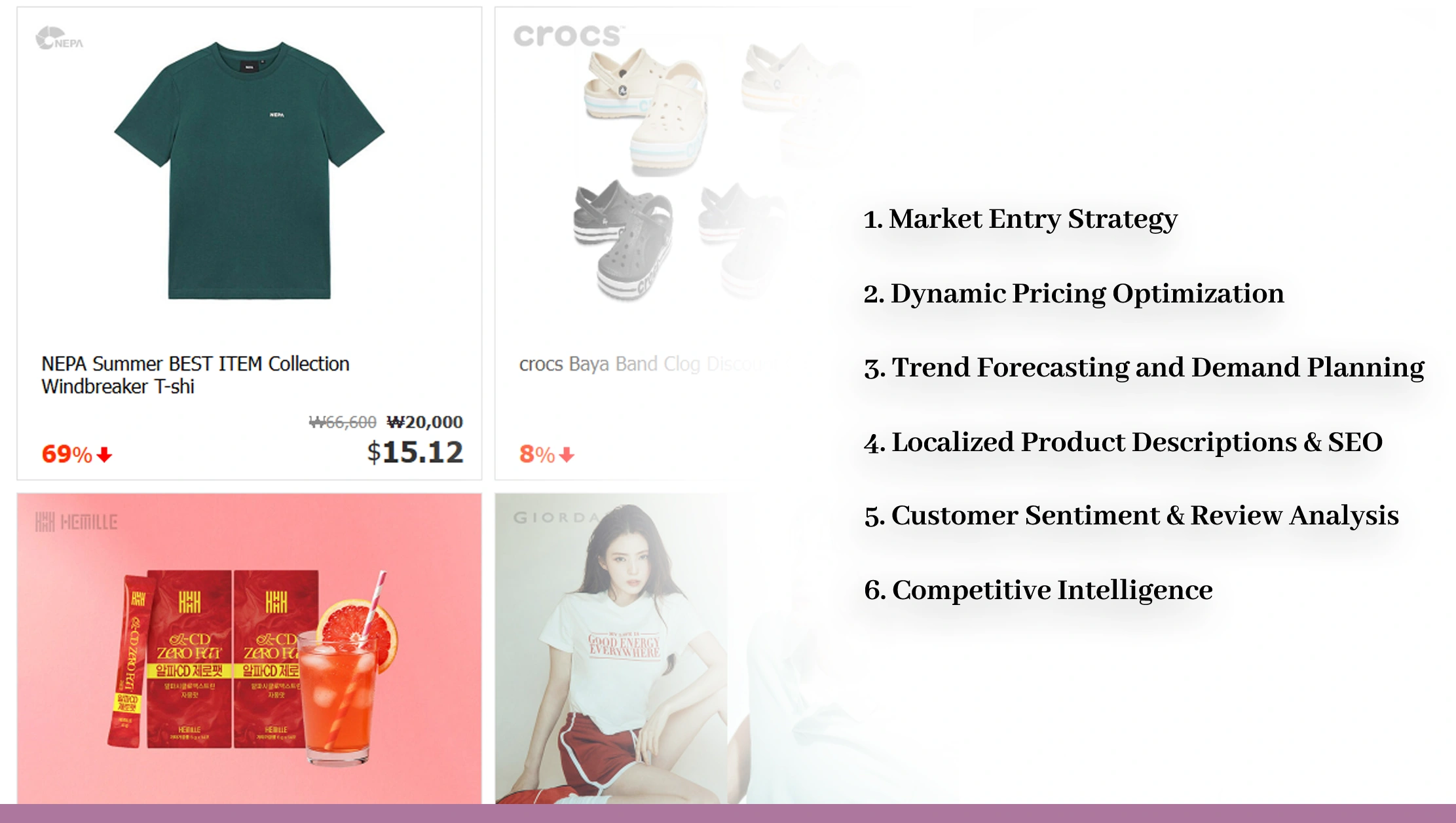
1. Market Entry Strategy
For brands planning to enter Korea, scraping product data reveals what consumers are currently buying. You can:
- Identify best-selling SKUs by category
- Analyze pricing and packaging trends
- Understand native search terms
2. Dynamic Pricing Optimization
Korean consumers are highly price-sensitive and frequently compare prices across platforms. With real-time scraping:
- Monitor competitors’ pricing in real-time
- React instantly to flash sales and promotions
- Test dynamic pricing models
3. Trend Forecasting and Demand Planning
Scrape daily, weekly, or monthly trending product data from Naver Shopping to:
- Predict seasonal demand
- Plan inventory levels accordingly
- Adjust marketing based on emerging trends
4. Localized Product Descriptions & SEO
Using scraped data, businesses can:
- Analyze top-performing product titles and descriptions
- Discover popular search phrases in Korean
- Create SEO-optimized content tailored to Korean consumer behavior
5. Customer Sentiment & Review Analysis
Scraping reviews from Coupang and Gmarket enables:
- Sentiment analysis using NLP techniques
- Identifying pain points or product flaws
- Tracking post-purchase satisfaction trends
6. Competitive Intelligence
Real-time product data scraping helps you:
- Monitor new product launches by local competitors
- Track SKU availability and variations
- Discover unauthorized resellers or counterfeit products
How to Technically Scrape These Platforms?
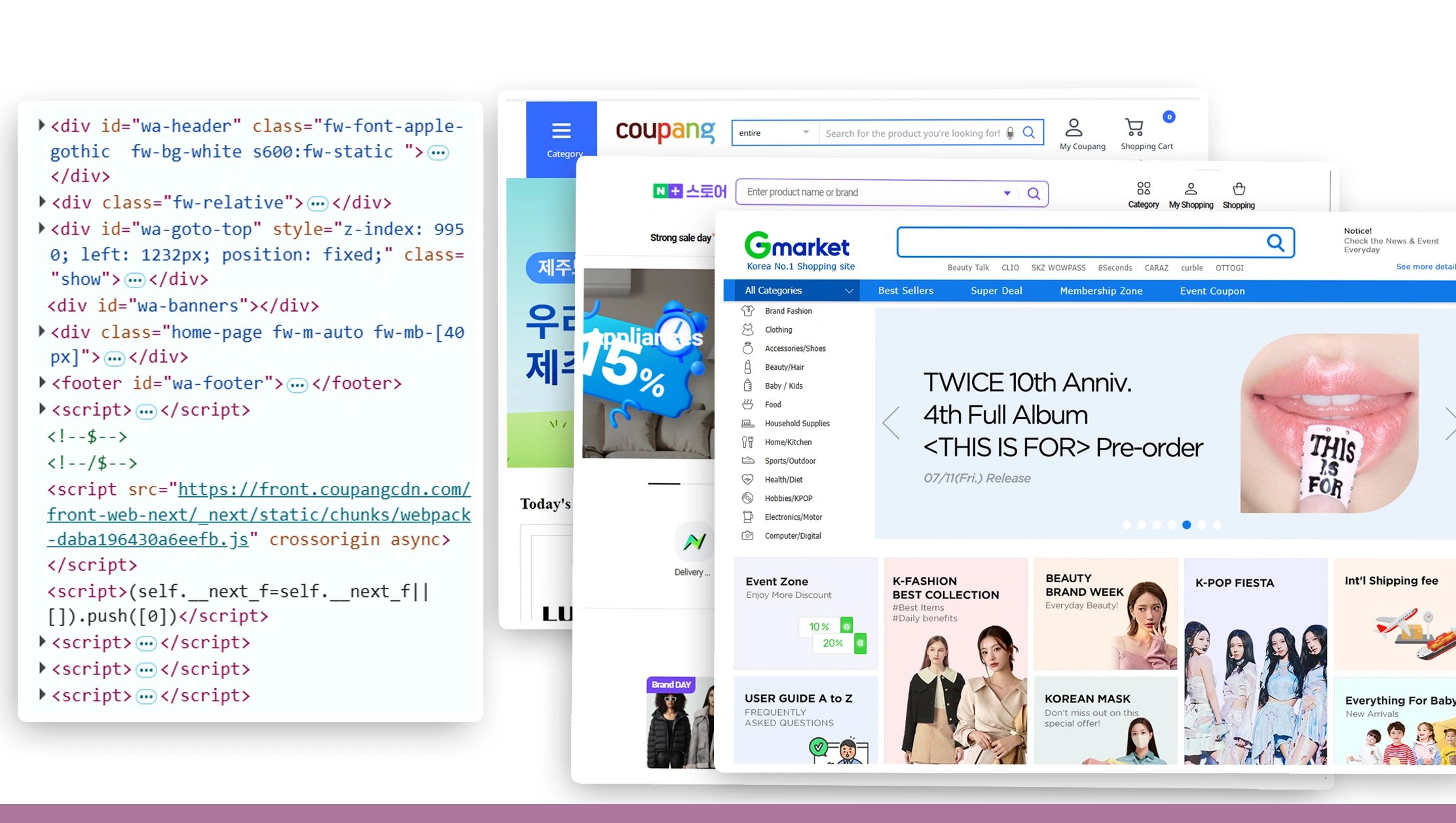
1. Use Public or Partner APIs
Some platforms offer open APIs or B2B data access partnerships. However, they are often limited in scope and access.
2. Custom Scraping Tools
Using tools like Python (with libraries like BeautifulSoup or Scrapy), you can develop custom crawlers for:
- HTML parsing
- JavaScript-rendered content scraping
- Session handling for login-based pages
3. Headless Browsers
For dynamic content, tools like Puppeteer or Playwright simulate real user interactions to extract:
- Price updates
- Product popups
- Infinite scroll pages
4. Real-Time Proxy Rotations
To avoid IP bans and CAPTCHAs:
- Use rotating residential or mobile proxies
- Incorporate delay and random browsing intervals
- Tools & Platforms That Enable Real-Time Korean Data Scraping
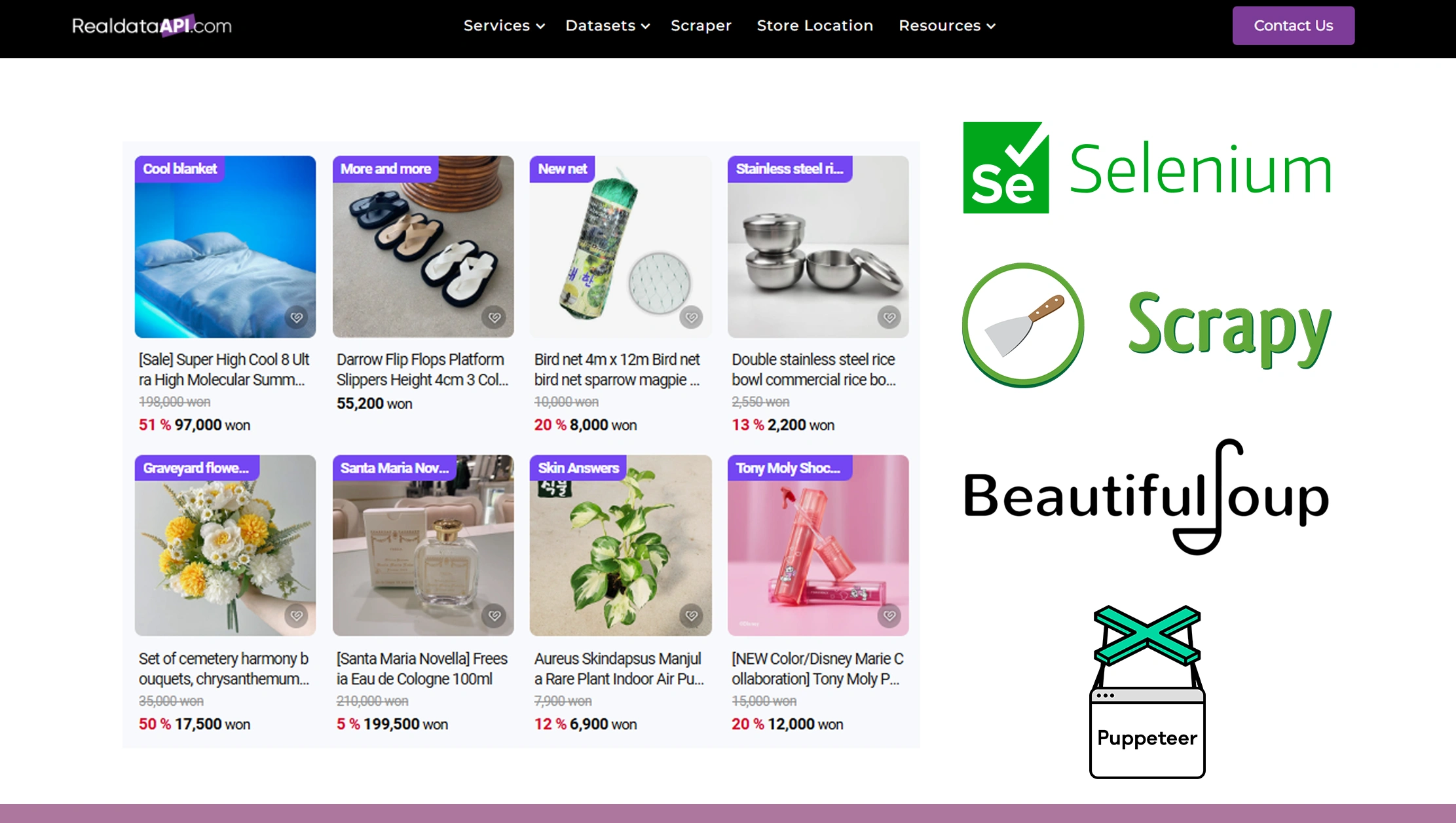
RealDataAPI
A scraping-as-a-service platform that specializes in real-time data extraction from Asian e-commerce platforms, including Naver, Coupang, and Gmarket.
Python + Scrapy or BeautifulSoup
Build custom crawlers tailored to specific platforms, including login automation and complex HTML parsing.
Selenium + Headless Chrome
For heavy interaction-based scraping like login-required or JavaScript-based shopping carts.
Start your journey with Scrape Naver product data, Scrape Coupang listings, and Gmarket data scraping using robust, scalable APIs—book your free tech demo now!
Get Insights Now!Use Case Examples by Industry
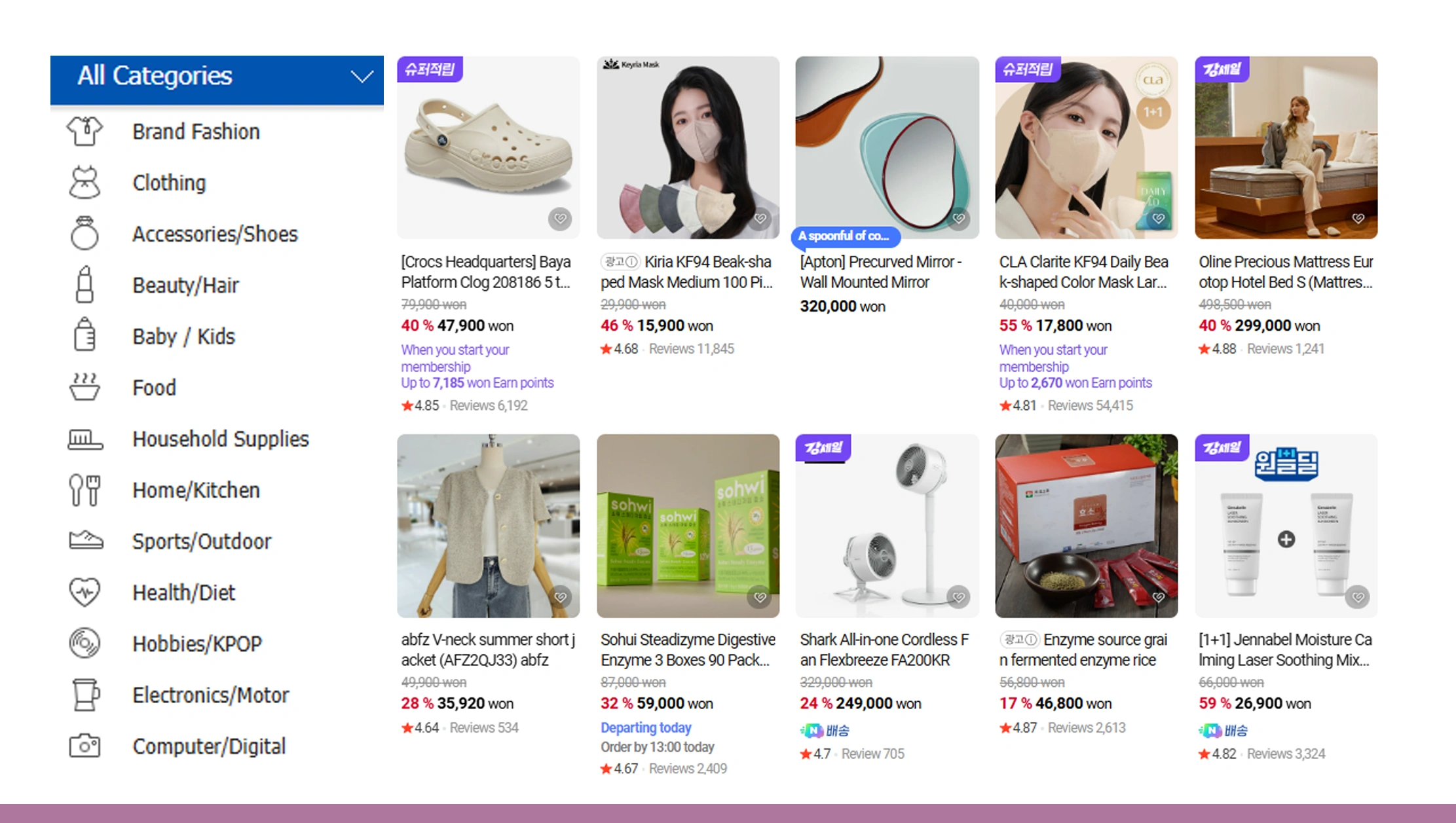
K-Beauty & Skincare
Track best-selling products on Olive Young, Naver Beauty, and Coupang
- Monitor seasonal skincare trends
- Scrape reviews to refine formulations based on local preferences
Fashion & Apparel
- Scrape trending styles and sizing guides
- Detect flash sales and time-limited deals
- Analyze influencer-affiliated products or hashtags
Grocery & Quick Commerce
- Monitor prices on Market Kurly and Coupang Eats
- Understand demand patterns by time or region
- Track inventory fluctuations in real-time
Electronics & Mobile Accessories
- Compare model availability across Gmarket and Coupang
- Analyze user reviews to identify pain points or positive feedback
- Scrape bundle deals or cashback offers
Legal & Ethical Considerations
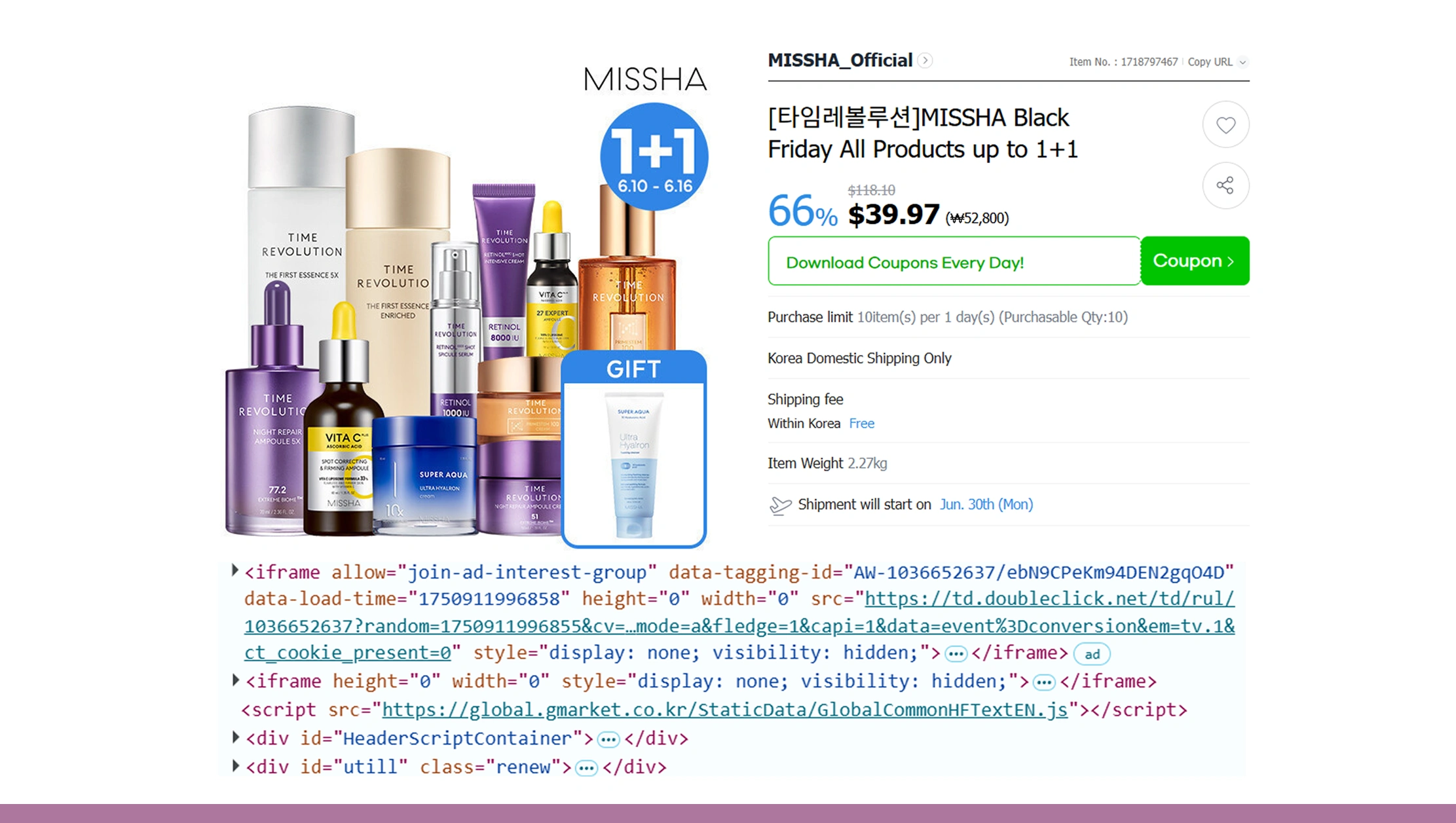
Scraping should be performed responsibly and in compliance with:
- Website terms of service
- Korea’s data privacy laws (Personal Information Protection Act - PIPA)
- Platform-specific API rate limits and permissions
To avoid legal issues:
- Prefer public or open API access where possible
- Respect robots.txt guidelines
- Avoid scraping personal user data (e.g., names, emails)
Conclusion
The Korean e-commerce landscape is dynamic, consumer-driven, and highly localized. For businesses aiming to thrive in this market, having access to real-time insights is crucial—and that’s where data scraping becomes a game-changer. By leveraging technologies to Scrape Naver product data, businesses can analyze search trends, product visibility, and keyword-level intent directly from Korea’s top search-shopping platform. Similarly, when you Scrape Coupang listings, you unlock insights into competitive pricing, delivery performance (such as Rocket Delivery), and detailed product-level reviews. This information helps refine your logistics, product listings, and market strategies for Korea’s fastest-growing online retailer. With Gmarket data scraping, brands can track auction-based pricing, international seller strategies, and buyer preferences across various categories like fashion, electronics, and beauty. These insights are invaluable for cross-border sellers and global D2C brands looking to localize.
If you're ready to explore this vibrant market, consider partnering with Real Data API—a trusted provider of scalable, compliant, and customizable Korean data scraping solutions. Interested in real-time Korean e-commerce data? Schedule a free consultation and gain direct access to platforms that power Korea’s digital economy.













